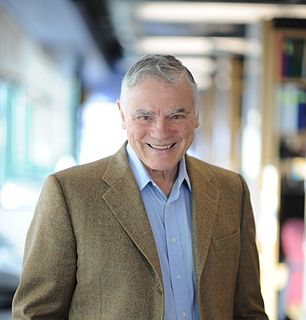A Quote by Craig Venter
Since my own genome was sequenced, my software has been broadcast into space in the form of electromagnetic waves, carrying my genetic information far beyond Earth. Whether there is any creature out there capable of making sense of the instructions in my genome, well, that's another question.
Related Quotes
The question is, are there useful things that we can do with the results of a genome sequence that would bring benefit? And the answer is, today, should the majority of people go and have their genome sequenced? Probably not. But are there particular circumstances in which genome sequencing is really helpful? Yes, there are.
As a Christian, but also as a scientist responsible for overseeing the Human Genome Project, one of my concerns has been the limits on applications of our understanding of the genome. Should there be limits? I think there should. I think the public has expressed their concern about ways this information might be misused.
We will have to make a decision, as we go into new environments outside of earth, whether we want to drag along with us all our pathogens. We can, or we can't - it's up to us - but I consider that part of genome engineering is how we interact with the huge part of our genome which is our microbiome.
Recently, results of the Human Genome Project have shattered one of Science's fundamental core beliefs, the concept of genetic determinism. We have been led to believe that our genes determine the character of our lives, yet new research surprisingly reveals that it is the character of our lives that controls our genes. Rather than being victims of our heredity, we are actually masters of our genome.
Consider: The human genome consists of about 3.3 billion base pairs. Since there are only four types of pair, that amounts to 0.8 gigabytes of information, or about what you can fit on a CD. With a microwave radio transmitter, you could beam that amount of information into space in a few minutes, and have it travel to anyone at light speed.
































